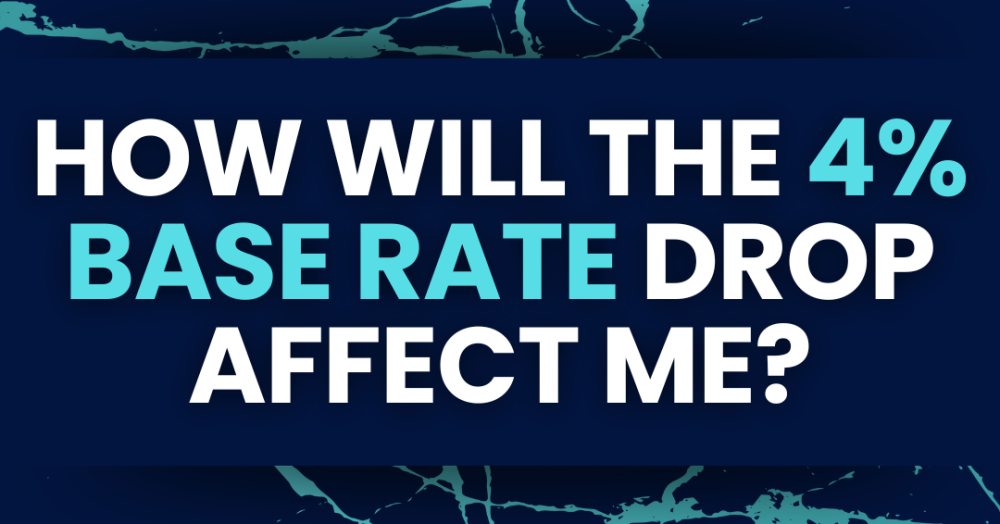The Bank of England has recently cut the base rate to 4%, the lowest level since early 2023. This move is designed to support the UK economy by making borrowing cheaper and stimulating market activity. But what does it actually mean for you—whether you’re looking to buy your next home or sell your current one?
If You’re a House Buyer
1. Lower Mortgage Costs
One of the most direct benefits of a base rate cut is cheaper mortgages. If you’re on a tracker mortgage, your payments will likely drop straight away. For example, a borrower with a £200,000 mortgage could save around £30–£40 per month depending on their lender.
If you’re taking out a new mortgage, lenders are now competing to offer more attractive fixed and variable deals. Many two-year and five-year fixed rates are edging closer to the 4–5% range, down from the 6%+ levels we saw last year.
What this means: Your borrowing power increases, giving you more options when house hunting.
2. Improved Affordability
With monthly mortgage repayments falling, homes that were once out of reach may now fit within your budget. This could open the door to a larger property, a better location, or simply reduce your financial stress.
What this means: First-time buyers may find it easier to step onto the ladder, and movers may stretch further than they originally thought.
3. More Competition Among Buyers
Here’s the flip side—lower borrowing costs usually mean more people flood into the market. Demand increases, which could drive property prices upward again. If you’ve been hoping for a bargain, the window may be closing.
What this means: Be prepared to act quickly when you find the right property, as competition could heat up.
4. Confidence in the Market
Psychology plays a big role in property decisions. Lower rates restore confidence—buyers who were hesitant before may now feel ready to commit. This momentum can make the buying process faster but also more competitive.
What this means: Don’t delay once you find the right home.
If You’re a House Seller (Vendor)
1. More Buyers Entering the Market
As affordability improves, more buyers will be actively searching. This increases your pool of potential purchasers and could result in more offers on your home.
What this means: You may sell more quickly than you would have earlier in the year.
2. Potential for Higher Offers
With buyers able to borrow more and with greater confidence, there’s a chance you’ll achieve a better price for your property. A competitive environment can sometimes even spark bidding wars, particularly if supply of homes remains limited.
What this means: Sellers may be able to achieve closer to (or above) asking price.
3. Faster Sales
When rates are high, transactions often drag out—buyers second-guess themselves, chains break down, and mortgage approvals take longer. With rates lower, buyers are more decisive, and lenders are keener to lend.
What this means: You could benefit from a smoother, faster transaction.
4. A Timely Opportunity
The property market moves in cycles. Right now, the combination of reduced rates and limited housing stock means sellers are in a favourable position. However, if rates fall further later on, more homes could come onto the market, increasing competition.
What this means: Acting now could put you ahead of the curve.
Final Thoughts
The Bank of England’s decision to cut the base rate to 4% is significant for both sides of the housing market.
For buyers, it means cheaper mortgages, greater affordability, and renewed confidence—but also more competition.
For sellers, it means a stronger chance of attracting more buyers, achieving higher offers, and completing faster.
In short, it’s a win for both parties—but timing is crucial. Give us a call today to discuss your situation so we can help: 0121 681 6327

